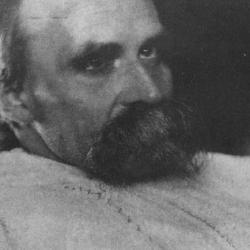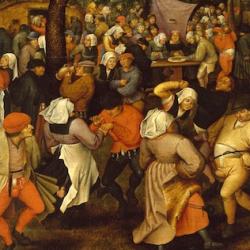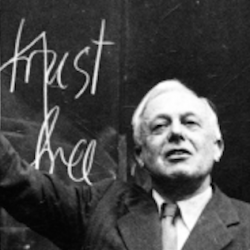In an essay in the journal European Legacy, Norman Fiering summarizes the thought of Eugen Rosenstock-Huessy on biography. Fiering asks whether there are recurring patterns in the lives of significant individuals, and, relying on Rosenstock-Huessy, calls attention to moments of “conversion” (not necessarily religious) and “grace” (unexpected encounters that open new possibilities).
A significant life is one that forges new pathways, opens new possibilities for being human. Rosenstock-Huessy sees this in the life of Nietzsche: “In the heart of the German university tradition, in the [field of] Classics, a man had achieved success and abandoned it. The one universal ambition of any German, to become a professor, he had reached and transcended. . . . An unseen new trail had been beaten by Nietzsche around the times which surrounded me, free from any requirements of institutions, but imperative for our real life in the future. Never have I doubted, never have I shaken off my belief, that in Nietzsche something final had happened, an avatar of the divine ended. He had stepped outside of his time.”
Nietzsche’s decision was not religiously motivated, but it had religious implications. Fiering notes that “the exceedingly brilliant student of Classics, Nietzsche, permanently undermined a German ideal, or idol, indeed a false god, by his devaluation of an academic career.”
For Rosenstock, the life is prior to and more foundational than the idea. Fiering puts it this way: “The embodiment or incarnation of a wholly new idea, evident in the life of a person, comes first, from which we may thereafter draw a lesson, or a moral, or derive ‘values,’ as we like to say, and thereby be freed from a prior social constraint (or perhaps fall under a new constraint). The point is, nothing is proven or established until it is first lived. Ideas in themselves are plentiful and cheap.” For Rosenstock-Huessy, “in the beginning is the incarnated word.”
Rosenstock himself put it pithily: “I prefer a child to an idea, and Lincoln to any abstract principle.”
(Fiering, “The Structure of Significant Lives,” The European Legacy [2017]: 1–21.)















